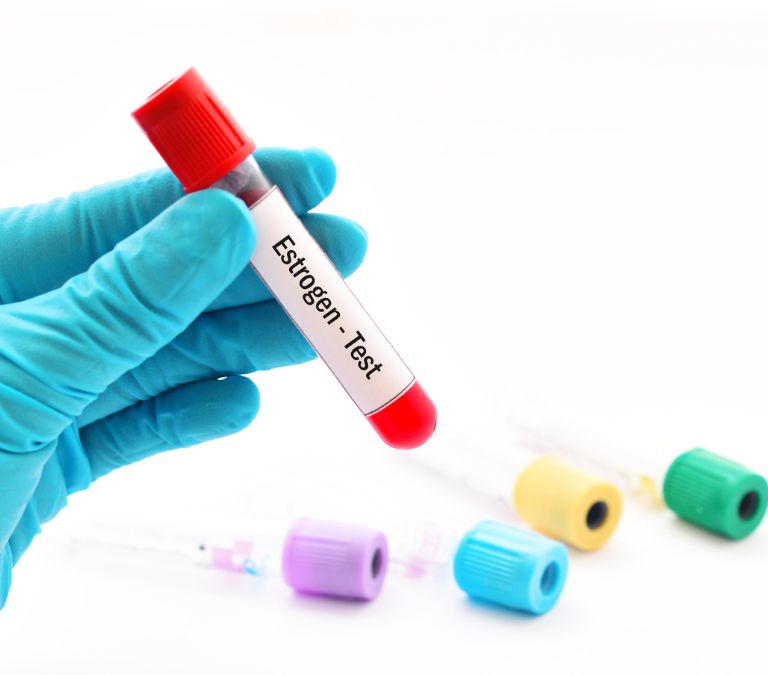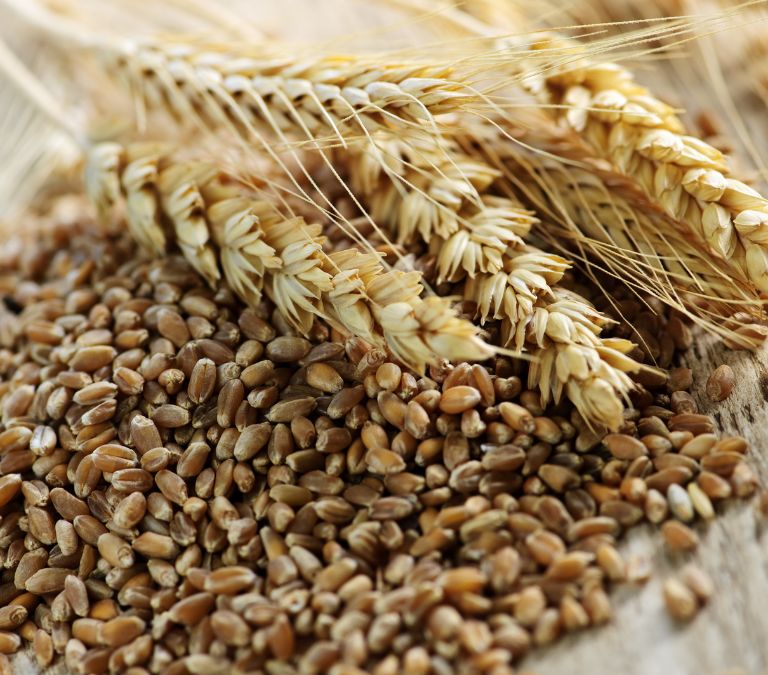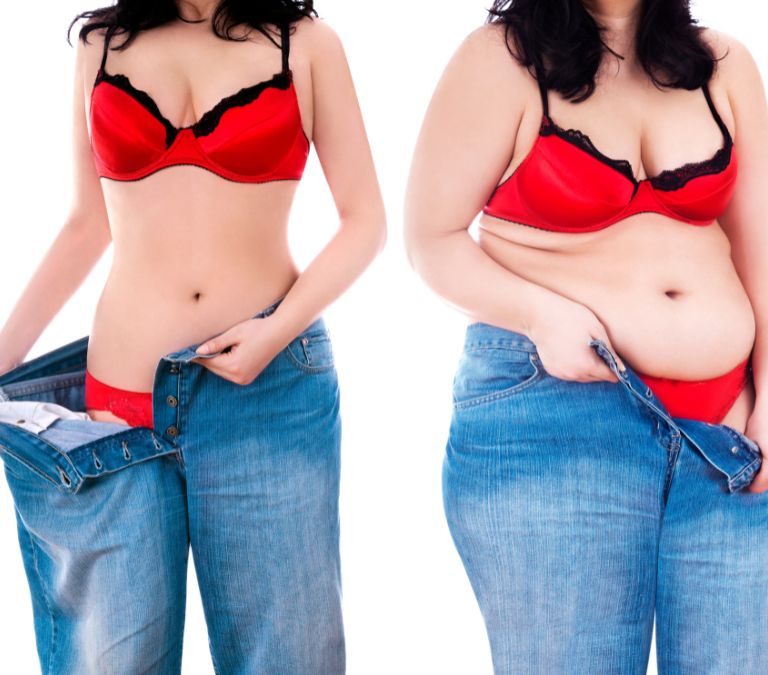A recent study reported that about one-third of women aged between 50 to 59 could be classified as being obese. As women advance in age, weight gain in all places, especially the abdomen, becomes inevitable. This type of weight is not easy to shed and leads to all manner of health problems. But do most women have to deal with menopausal weight gain?
Menopause refers to the period when a woman undergoes a cessation of ovulation, and the monthly flow stops. Once a woman hasn’t had a monthly flow for 12 months, it can be concluded that she has reached menopausal age. For many women, menopause sets in between their late 40s and early 50s. Menopausal weight gain whether before or after, can be attributed to some factors, which are:
Why Women Experience Menopausal Weight Gain
Low estrogen levels

Estrogen, the major sex hormone in females and is responsible for regulating the menstrual cycle and cholesterol levels, reduces significantly during the menopausal years. Although there is no direct link between menopause and weight gain, research done using animals has shown that low estrogen levels cause a higher accumulation of total body fat and abdominal fat. In addition, it was observed that lesser estrogen levels caused a reduction in physical activity and higher appetite.
Lower estrogen levels in menopausal women could also reduce the metabolic rate, making weight gain easier. This causes women around the menopausal age to store fat in their abdomen and lower body, making them pear-shaped or apple-shaped. Undergoing hormone replacement therapy could help increase estrogen levels so these unwanted body fat could be reduced.
Age
The natural aging process has also been linked to weight gain during menopause. People are more likely to reduce their physical activities as they age. Their lifestyle habits also change, and at the same time, the body undergoes metabolism at a slower rate. These factors all contribute to an increase in body fat and a decrease in muscle mass as the rate at which calories are being burnt reduces drastically.
Inadequate sleep
Sleep deprivation from night sweats and hot flashes during menopause could also be associated with weight gain. In addition, animal studies have shown that lack of adequate sleep could cause a marked increase in weight.
Genetics
Menopausal weight gain could be hereditary. In families where the parents or other relatives have gained weight at the menopausal periods of their lives, you could also expect to add a few extra pounds.
Aside from the factors discussed above, other factors that could cause excess weight gain during menopause are the number of children, chemotherapy, use of anti-depressants or anti-psychotics, lifestyle habits, etc.
If weight gain during menopause is not controlled, it could significantly affect one’s health. Doctors have linked excess weight gain, especially to type 2 diabetes, heart diseases, and breathing troubles. In addition, gaining unwanted body fat could also elevate the risk of developing cancerous tumors later in life.
10 Ways to Lose Menopausal Weight
Just like shedding weight normally, menopausal weight gain can be controlled by following certain steps:
Stay physically active

Exercising is a great formula for shedding menopausal weight gain. Aside from helping with weight loss, exercise is also great for maintaining general physical health. As the body loses muscle tone and accumulates more fat, exercise can be embarked upon to build those muscles and burn the extra fat. And the good thing is that these exercises do not have to be tedious or vigorous.
Studies have shown that aerobic exercises and resistance training for about 150 minutes per week can help women get rid of menopausal weight gain and build up their muscles. Adopting a fit lifestyle could be difficult for someone who did not exercise previously. However, you can blend into the lifestyle by gradually building up your physical activity level. For example, using the stairs instead of the elevator, walking the dog, gardening, and other activities can be integrated into your schedule.
Eat fewer portions
Dieting is a great way to maintain and lose weight. By eating less, you would be able to cut down on your calories as you need fewer calories in your 50s than during your 30s and 40s. Lesser portions can be achieved by understanding the number of calories in standard food servings to get the calories right. Also, eating out should be reduced as restaurants’ portion sizes are larger.
Eat healthy foods
Apart from cutting down on food portions, your diet should contain more healthy and nutrient-rich foods. You should lean towards a plant-based diet and consume meat in limited quantities at this age. Fruits, vegetables, whole grains, nuts, fish, low-fat dairy products, lean protein, and plant-based oils should constitute your diet.
Also, processed foods and foods with high carbs and high amounts of trans and saturated fats should be avoided as much as possible. This includes white bread, processed meats, pastries, etc. You should also cut down on carbonated and sweetened drinks as they are full of calories. A healthy eating lifestyle can be adopted by preparing homemade meals as much as possible.
Track food and weight
By keeping a food log or diary, you can identify your food intake and its relation to weight gain. Having a bathroom scale also helps monitor your daily, weekly, and monthly weight gain. The foods that trigger unhealthy weight gain are identified and reduced or eliminated from your diet.
Reduce alcohol
Intake of alcohol is another factor reasonable for menopausal weight gain. Alcoholic drinks and beverages have been linked to excessive weight gain due to excess sugar in them. Reducing the consumption or cutting it out totally from your diet can help reduce the risk of gaining menopausal weight.
Get enough sleep
Menopausal weight gain has been linked to a lack of adequate sleep. Not getting enough high-quality sleep could impact metabolic processes and appetite hormones and lead to excess weight gain. You can get sufficient high-quality sleep by:
- Ensuring your room is warm and soothing.
- Staying away from all glaring devices an hour before you intend to sleep.
- Eliminating all sources of noise.
Hormone replacement therapy (HRT)
Hormone replacement therapy, also known as menopausal hormone therapy, has been found to help reduce fat gain and increase muscle mass. Through this treatment, women approaching menopause can replenish the depleting levels of hormones, thereby relieving them of menopausal symptoms. The treatment is highly beneficial and makes going through the menopausal stage less painful. In addition, unwanted weight gain may be avoided by keeping the estrogen at an optimal level.
Seek for support
Menopause is a life-changing milestone in every woman’s life, and going through it alone could be overwhelming. However, receiving support from a specialized healthcare professional, family and friends makes the journey easier. You can share your meal plan with your spouse, for example, and have them motivate and even join you as you adopt healthier eating habits.
You could also have a workout partner to keep you motivated on your fitness path. Aside from family and friends, sharing one’s progress on social media is a great way to connect with others on the same path and be more accountable.
Alternative therapy
Alternative medicine is another great way of reducing menopausal symptoms and the stress it brings along. Although conclusive research is scarce in the field, there have been testimonials of their effectiveness in dealing with weight gain during menopause. Yoga, meditation, Tai chi, and other forms of alternative medicine can help with menopausal weight gain.
Talk to your doctor
It is important to have regular clinical visits at this stage so your doctor can help manage the menopausal symptoms and other issues. Excessive and sudden weight gain could indicate an underlying medical condition that is not menopausal related. You should also consult with your doctor before embarking on a fitness program to know if it’s safe. Your diet plan should be shared with a certified dietician to ensure you get all the nutrients you need in the right proportion.
How to deal with belly fat during Menopause
For many women going through menopause, it is most likely that the extra weight gain will be in the midsection and hips. This is because the extra pounds are usually accumulated around the belly. However, this could be embarrassing as it changes your appearance and is annoying. Also, weight gain in the belly has been shown by experts to add to the risk of developing cardiovascular diseases. Therefore, the bulge has to be combated and shed before it threatens one’s well-being. Here are a few ways through which menopausal weight gain can be reduced:
Cut down on carbs
Carbohydrates are one of the major enemies of women in their middle age. Eating meals with high amounts of unrefined carbs contribute to the development of belly fat. Studies have shown that cutting down on carbs and sugar helps reduce the risk of menopausal belly fat. Keeping a food log can help determine the level of carbs in your diet and know if you need to adjust. Pasta, bread, sweetened foods, and carbonated drinks should be consumed in minimal amounts as they are all sources of high sugar levels.
Cut down on fat
Fat is a much-needed part of a healthy diet and cannot be eliminated. However, you need to be more intentional about the choice of fat in your diet. Healthier fats are primarily from plant sources like nuts, almonds, olive, and so on. However, even fat from plant sources should be used in a minimal amount to avoid going overboard.
Another way to cut back on fat is to reduce eat-outs. Restaurants add large amounts of fats and oil to food as it adds more flavor. By preparing your meals at home, you can measure and monitor the amounts of fats and oils you consume.
Stay physically active
Experts have suggested that all adults undergo at least 150 minutes of aerobic activity weekly and partake in strengthening exercises at least twice a week. These exercises can be slowly adopted and integrated into one’s lifestyle as they help burn that menopausal weight gain. They also keep the metabolism going and tone the muscles to reduce fat buildup.
It is also important to stay in motion as much as possible. A study has shown that sitting for long hours contributes to fat accumulation in the abdomen and around organs like the liver and heart. So you can have a standing desk placed in your office, pace while speaking on the phone, take the dog for a walk, or take the stairs instead of the elevator.
Get enough sleep
If you have not been getting enough high-quality sleep, keeping your appetite in check could be difficult, and the hunger hormones become dysfunctional at this point. Women, especially those in their middle age, need more sleep as they get older, so you must set everything right in your bedroom to get a night of much-needed beauty sleep. Turn off all blue-light devices and glowing screens at least an hour before bed. Also, keep the room well ventilated to reduce hot flashes and night sweats menopausal women experience.
5 Foods to avoid during Menopause
Adopting a healthy diet during the menopausal stage could significantly affect menopausal symptoms. Cutting down on these foods or avoiding them could help alleviate these symptoms:
Spicy foods
Extra hot or spicy food could trigger hot flashes, sweating, or flushing. Salsa, jalapenos, cayenne, and other hot foods should be used in minimal portions or eliminated from your diet if they trigger these symptoms. You can replace the spices with cumin, curry, turmeric, or other options that do not provide much heat.
Processed foods
Processed foods are usually high in sodium and sugar, making you feel bloated and elevating your blood pressure. Therefore, potato chips, cookies, and other processed snacks should be avoided as much as possible. Instead, healthier options like whole-grain crackers and carrots should be considered snacks.
Fast foods
Meals sold by restaurants and fast food joints are usually packed with fats and oils. Fatty foods have been linked to an increased risk of heart diseases and excess weight gain, which menopausal women are already predisposed to. To reduce the need for visiting restaurants, prepare meals at home and pack some for lunch.
Alcohol
Alcohol worsens menopausal symptoms in some women, as a study has shown. Alcohol has also been linked to hot flashes and cardiovascular diseases in menopausal women. Therefore, you should listen to your body and avoid it if you fall into this category.
Caffeine
Studies have shown that menopausal women who consume caffeine are at a higher risk of hot flashes than women who did not consume it. So if you are going through menopause and love your morning cup, you can substitute caffeine with a cup of green tea or peppermint tea.
Five foods to eat during Menopause In Order To Avoid Menopausal Weight Gain

Whole grains
Whole grains are packed full of nutrients, especially fiber, plant proteins, and vitamin B. Vitamin B helps keep energy levels high and elevates mood. Eating foods prepared with whole grains can also help reduce the risk of cardiovascular disease, cancer, and diabetes all of which arise from menopausal weight gain.
Omega-3 fatty acids
These fatty acids are essential to heart health, thereby reducing the risk of cardiovascular disease faced by menopausal women. Omega-3 can be found in mackerels, salmon, herring, sardines, etc. In addition, a Harvard study has shown that Omega-3 acids help keep mood swings in check.
Fruits and vegetables
Fruits and vegetables are high in fiber and help you feel full with fewer calories. They are great options for menopausal women, especially those experiencing weight gain. The higher water content also aids digestion and keeps you hydrated. Some fruits like mango and prunes have also been found to help deal with wrinkles and aging signs. Leafy greens are also essential for menopausal women. They are full of nutrients like calcium and potassium that strengthen the bones and muscles.
Dairy products
Low-fat yogurt, milk, and cheese are rich in calcium, vitamin D, and protein essential for menopausal women. They help strengthen their bones and also reduce the risk of postmenopausal osteoporosis. Yogurt also helps enhance digestion and immunity with the probiotics in it.
Water
Staying hydrated while going through menopause is very important as it improves the skin and reduces vaginal dryness. It also helps maintain weight and flush out all toxins in the body. On the other hand, dehydration could trigger hot flashes, confusion, fatigue, and muscle cramps. To know if your water intake is at an optimal level, examine your urine daily.
If it is pale yellow, you are getting the right amount of water. However, if the urine is deep yellow, you need to up the ante and take more water. You can also add more water to your diet by taking watermelon, soups, lemons, cucumber, etc. It also helps to have a filled water bottle with you.







